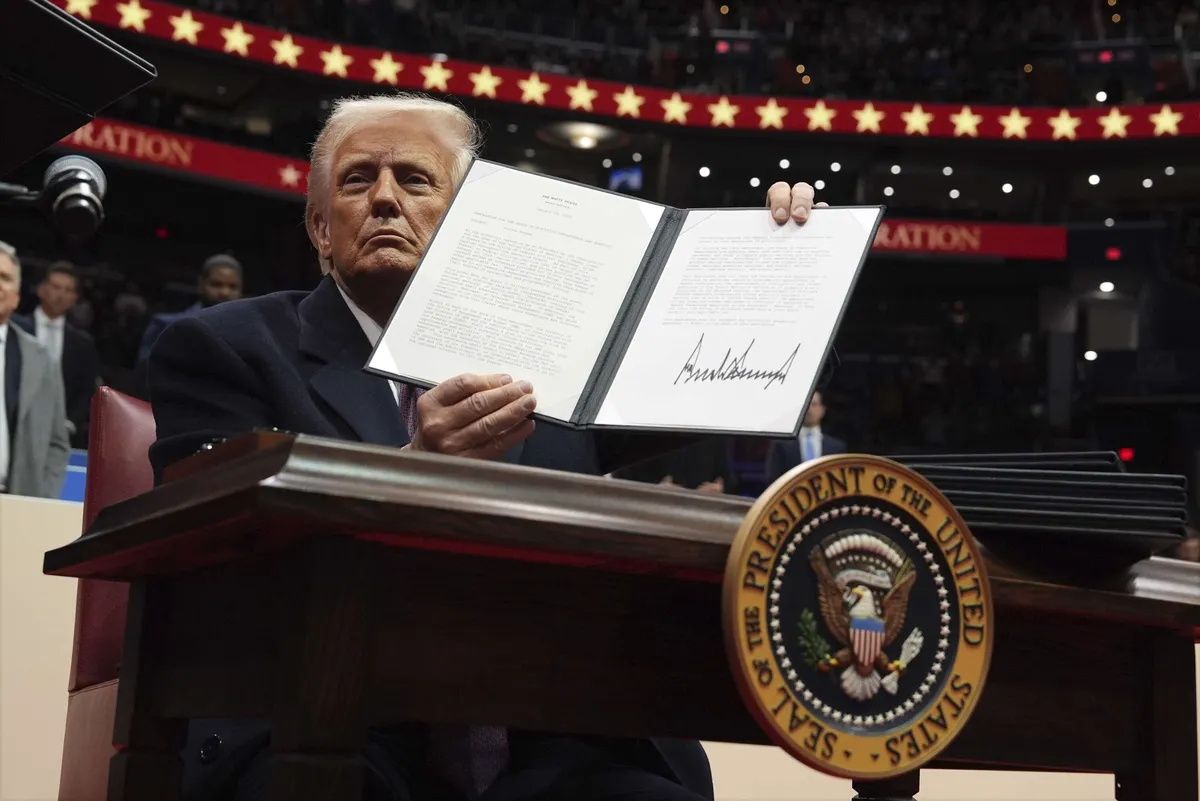Immediately after taking office as the President of the United States Donald Trump pulled the US out of the Paris climate agreement – again.
Although according to the rules, the withdrawal takes a year, experts estimate that the departure of the United States will weaken and slow down global climate action, despite the fact that the rest of the world’s climate work continues.
The departure of the US leaves behind a political vacuum. Who fills it and does anyone fill it?
President of the European Commission Ursula von der Leyen said at the World Economic Forum in Davos earlier this week that “The Paris Agreement is still humanity’s best hope. So Europe stays the course and continues to cooperate with all nations”.
However, even in Europe, the pressure to put a stop to climate action has grown, especially after the far-right got stronger in the EU elections.
On the other hand, the world is in a very different position now than in 2016, when Trump started his first term.
Renewable energy, such as wind and solar power, has become more common around the world, including in the United States. Investments in renewables, batteries and other low-carbon technology have also increased.
Energy Agency IEA statistics by Globally, investments in renewable energy were about $2 trillion last year, almost twice as much as in fossil energy.
Still, the departure of the USA is a big blow. In recent years, climate negotiations under the UN have talked about financing, that is, how rich countries help poorer ones to switch to low-carbon solutions and adapt to climate change.
In last November’s climate talks, the world’s nations agreed to triple annual climate funding to $300 billion by 2035.
The United States is one of the largest financiers and, for example, a partner of the World Bank, which provides climate finance. If the US closes the money taps, implementation will slow down.
It remains to be seen how much Trump will be able to slow down change in the United States. President Joe Biden the big climate act was the IRA program that has supported clean energy investments in the US. New jobs were also created in areas of Trump supporters, and Trump does not want to anger his voters. In the United States, some states, cities and companies continue climate work at their own levels.
Trump has criticized climate action as unfair and has taken China as an example.
The country plays on two tracks. China is the world’s biggest polluter, but also invests the most in renewables. The investments bear fruit: Chinese solar panels have dominated for a long time, but now the market is also being taken over by electric cars and battery technology.
Trump’s slowing down climate policy may turn against itself when China and Europe gain a competitive advantage.
“Trump’s slowing down climate policy can actually backfire when China and Europe gain a competitive advantage.”

Why Hiring a Custom Software Development Company Is the Better Choice? – NewsBreak